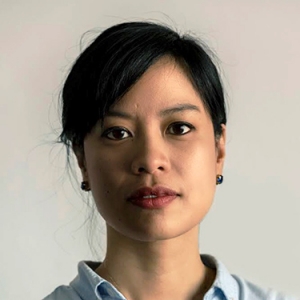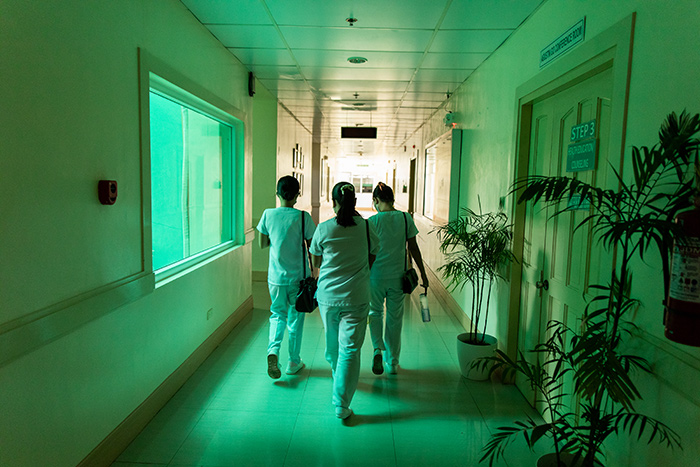2024 SEIU Award for Reporting on Racial and Economic Justice

Aurora Almendral
The COVID-19 pandemic created an unprecedented staffing crisis for hospitals in the United States and Europe. Nurses left the profession in droves, citing stress and burnout, and sparking a shortage that will grow significantly worse. Nearly one-fifth of nurses are planning to leave their jobs by 2027.
To bolster their workforces, hospitals have dramatically accelerated hiring from countries such as the Philippines, India, Nigeria, Zimbabwe, and Jamaica. They have long sent trained, experienced nurses to work abroad, but since the start of the pandemic, the exodus that was a steady trickle has become a flood.
For her four-part series, Almendral traveled to India, Nigeria, the Philippines, the United Kingdom, and across the United States to investigate the consequences of this global trend. She spoke with dozens of nurses, along with recruitment agency employees, hospital officials, public health experts, researchers, and officials in government health departments.

She revealed an international bidding war for healthcare workers, leading to the rampant exploitation of migrant nurses. It leaves poorer health systems around the world scrambling to cope.
She found nurses in a Florida hospital who were subjected to coercive labor contracts, and threatened by the employment agency that recruited them.
In India and the United Kingdom, healthcare brokers demanded that nurses from abroad pay them thousands of pounds in fees in what the government dubbed “modern slavery.”
In Nigeria and the Philippines, Almendral discovered the exodus of nurses caused a “medical brain drain,” destabilizing local healthcare systems.
Her investigation disclosed that immigrant nurses often are paid less than their American counterparts. During the pandemic, they were given some of the most strenuous and risky duties, frequently assigned to work face-to-face with patients. In the U.S., as of September, 2020, just four per cent of nurses were Filipino, but they accounted for 30 per cent of nurse deaths from COVID-19 and related complications.
Almendral faced countless challenges while reporting, in parsing complicated labor and immigration laws; with language barriers; and in facing fear from interview subjects, including the representatives of recruitment agencies.
Nurses abroad worried that talking to a journalist would jeopardize their ticket to America, and often only agreed to meet clandestinely, to avoid the retaliation of their own government. Almendral says nurses already in the U.S. were the most fearful, even as they were being exploited in a system of high profits, broken incentives, and indifferent government regulation.
In the weeks after publication, the founder of a dubious placement agency in India profiled in the series was arrested. In the U.K., the BBC followed up with its own undercover investigation into the issue. In November, the Gangmasters and Labour Abuse Authority, a U.K. government body that probes labor exploitation, referred to the abuse of migrant care workers as its “number one priority.” And in Florida, nurses recently filed a class-action lawsuit against the hospital spotlighted in the reporting, telling the reporting team that this investigation helped them better understand their situation, and it strengthened their resolve.
Contributor: Samanth Subramanian
Aurora Almendral is an international editor at NBC News, based in London. Previously, she was a senior reporter at Quartz, where she covered economic disruption in the wake of pandemic, war and the climate crisis. In over a decade of international reporting, Almendral has covered business, corruption, conflict, and human rights, and has returned often to stories of migration, displacement, and labor. Her work has appeared in The New York Times, National Geographic Magazine, and Frontline PBS, among other outlets. She is the recipient of several awards, including from the Overseas Press Club of America, and is working on her first book about the social and historical forces shaping modern Philippines.

